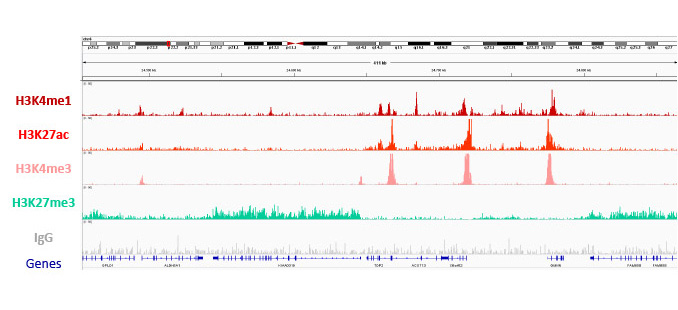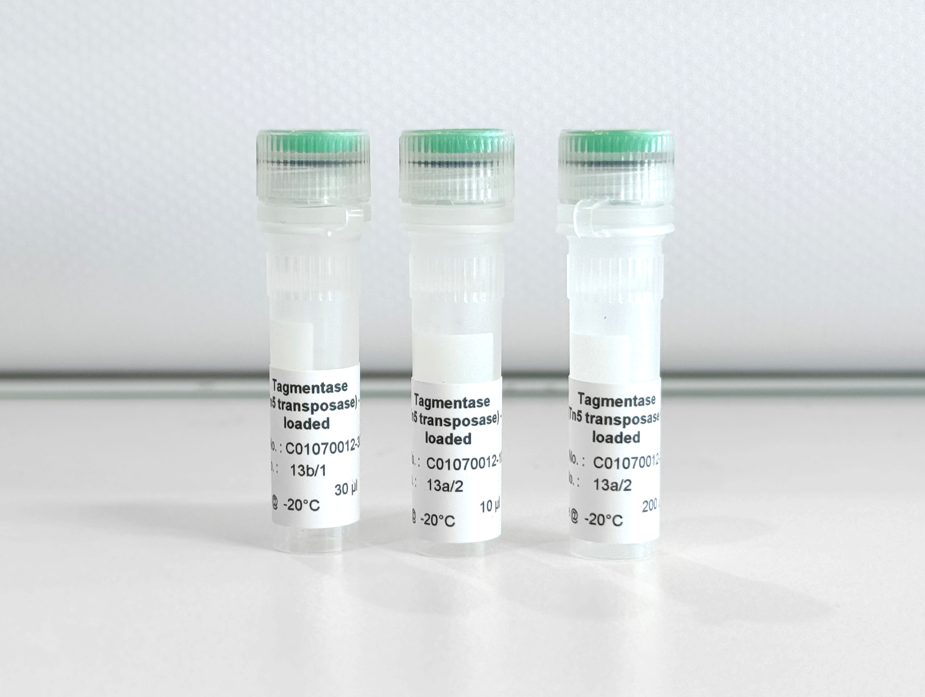We were very happy with the method. It gave good results in the end, and required much smaller samples than we need to reliably perform conventional ChIP-seq.
In our view, the main advantages of the ChIPmentation kit compared to our conventional ChIP-seq protocol are (most important first):
- smaller sample requirement,
- simpler workflow with less that can go wrong,
- slightly higher resolution and signal: noise ratio.
ChIPmentation sequencing profiles for p65. Chromatin preparation and immunoprecipitation have been performed on stimulated NIH3T3 cells using the iDeal ChIP-seq kit for TFs (Cat. No. C01010055). Chromatin from 4,000,000 cells was used for the immunoprecipitation in combination with either anti-p65 antibody or IgG. The library preparation was performed with the TAG Kit for ChIPmentation (Cat. No. C01011030) and 24 SI for ChIPmentation (Cat. No. C01011031).






